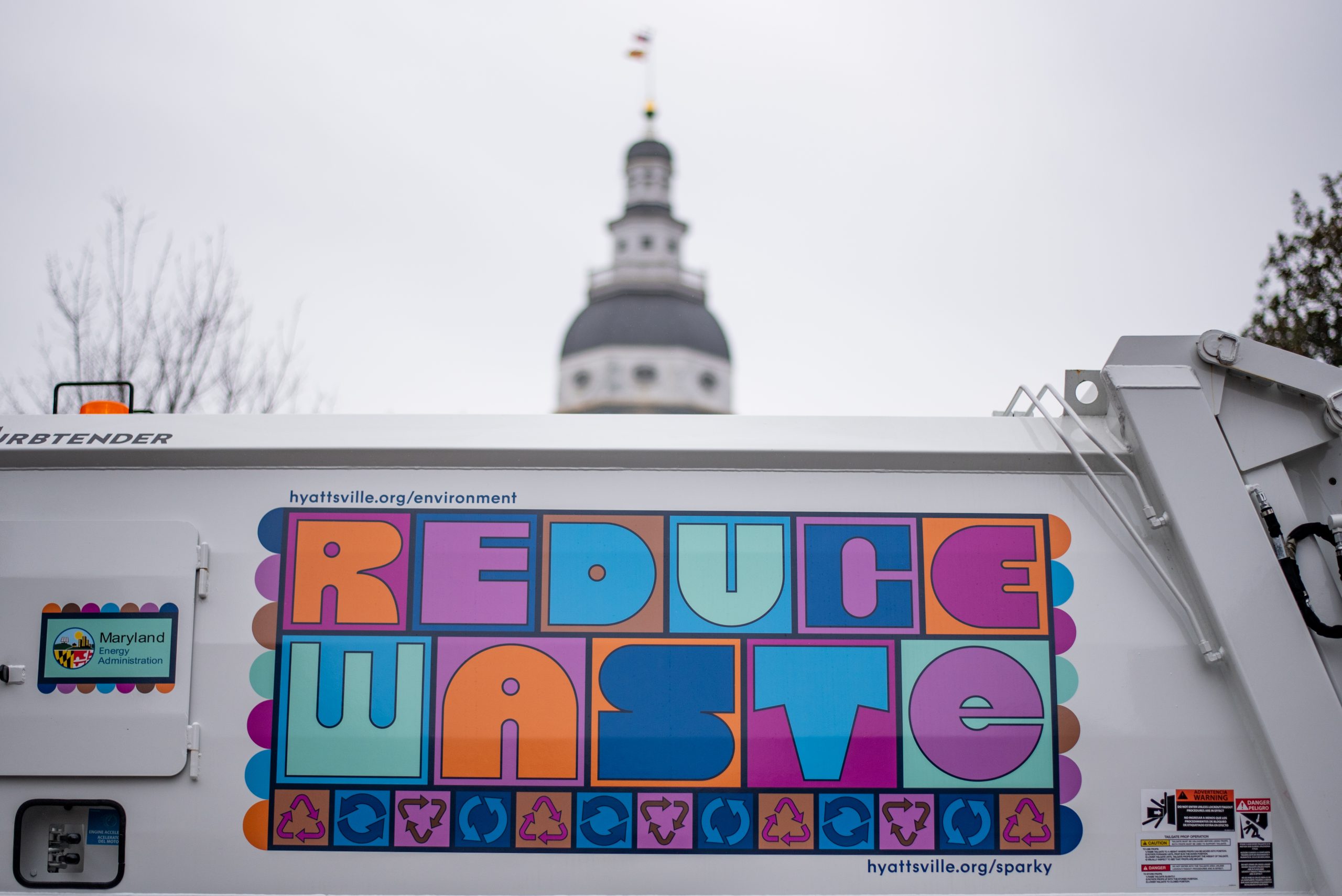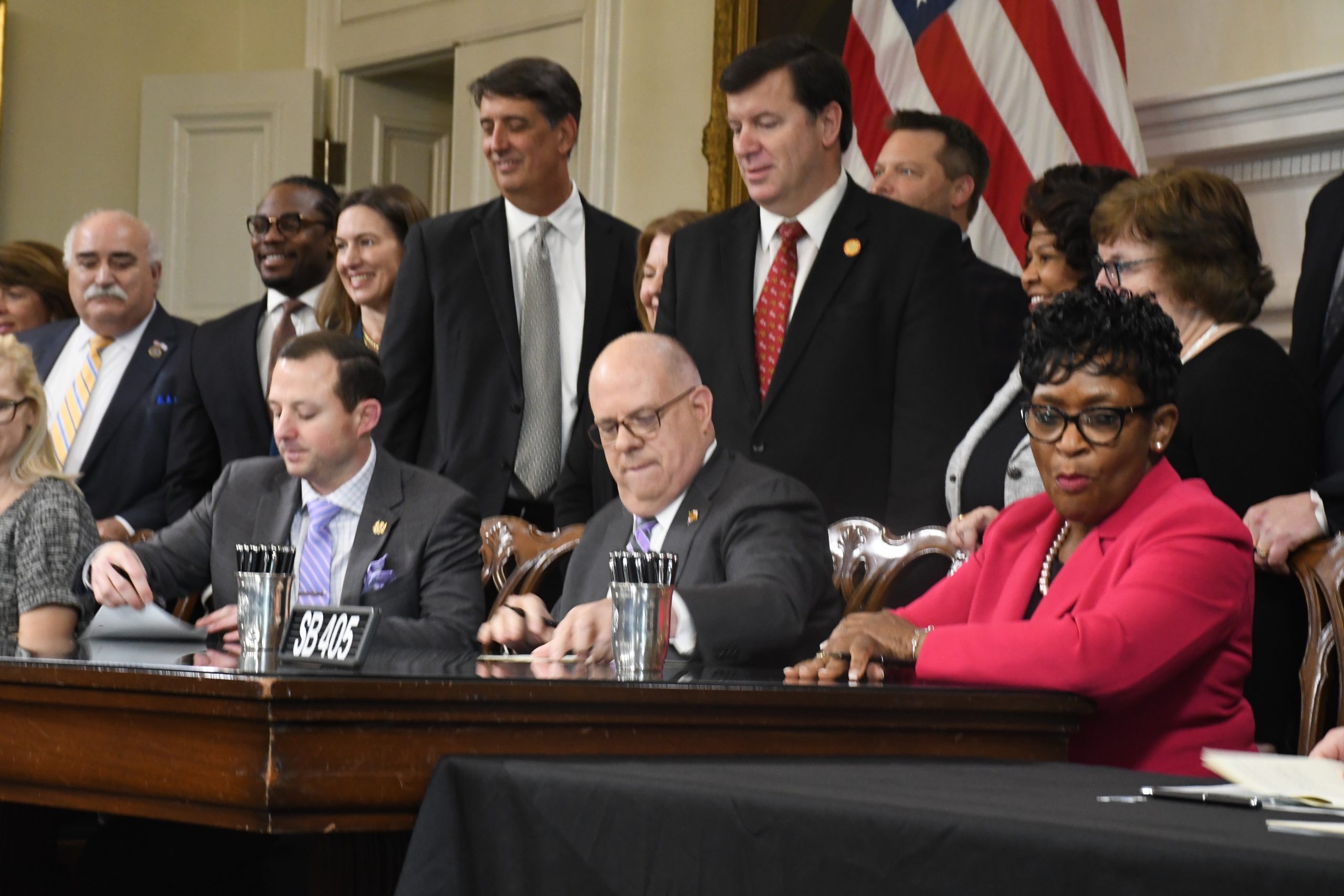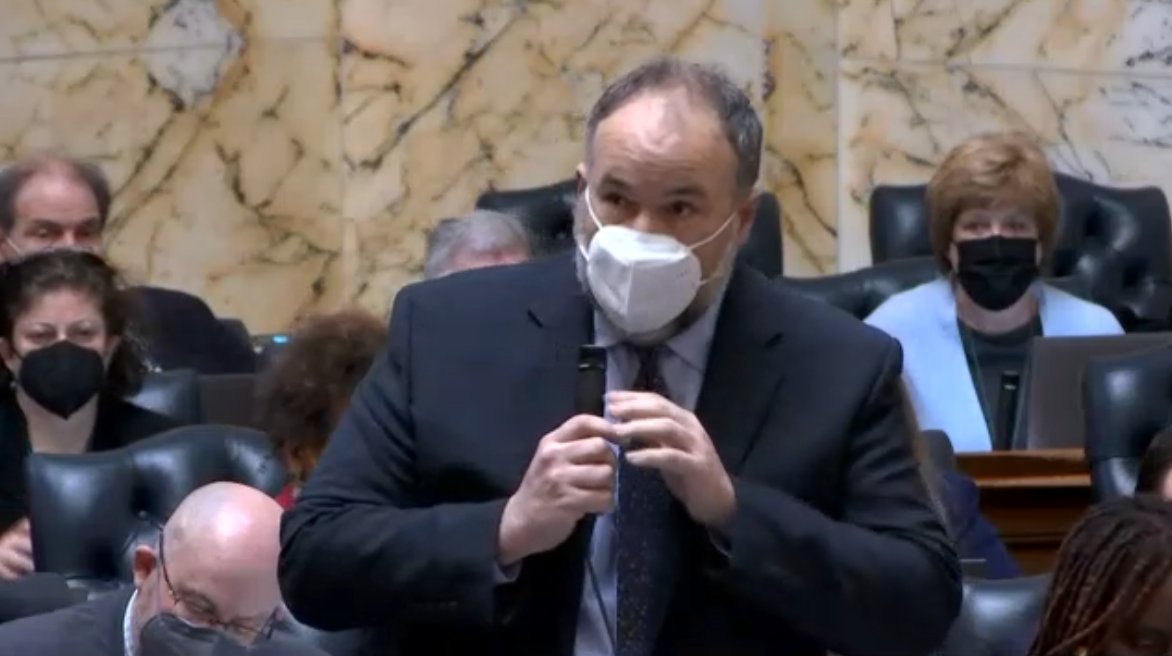By LOGAN HILL
ANNAPOLIS — The 2022 Maryland General Assembly wrapped up late Monday with lawmakers pushing a handful of bills across the finish line just before the deadline at midnight Tuesday, although most of the major legislation already had passed in time for an override of a potential veto.
The new laws, many of which passed over Republican Gov. Larry Hogan’s objections, included landmark efforts to slow climate change, a referendum on making marijuana legal and an effort to expand access to abortion services.
ABORTION RIGHTS EXPANSION
Nurse practitioners, midwives and other nonphysician medical professionals will be able to perform abortions in Maryland after the Democrats overrode Hogan’s veto to pass the Abortion Care Access Act.
The bill includes $3.5 million a year to train medical professionals in safely performing abortions. The measure also will require most health insurance plans to cover abortions at no cost to patients. The law takes effect July 1. Insurance provisions will apply to all policies, contracts and health benefit plans issued, delivered or renewed in Maryland on or after Jan. 1, 2023.

Rebecca Coppola and husband John Becher, with their daughters Sage Coppola Becher and Clio Coppola Becher outside their Baltimore row house. Coppola said because they didn’t have paid family leave, she needed to cobble together disability pay, paid sick leave and paid days off to supplement the 12 weeks she cared for her first newborn in 2020. (Joe Ryan/Capital News Service)
PAID FAMILY AND MEDICAL LEAVE
Another bill vetoed by Hogan and subsequently overridden, the Time to Care Act of 2022, establishes the Family and Medical Leave Insurance Program for Maryland workers who need to leave work temporarily for specific reasons.
For example, the insurance program will offer workers up to 12 weeks paid time off to welcome newborn babies, take care of sick or ailing relatives, recover from personal medical care or prepare for a military deployment.
The program will be funded by a payroll contribution – split equally between workers and employers – for companies with more than 15 employees. The legislation did not specify how much workers and businesses would contribute to fund the program.
Weekly benefits for workers claiming leave from the fund will be based on prior earnings and will be capped at $1,000 per week, although that figure will be adjusted in the future based on inflation.
The program is set to begin distributing benefits as early as 2025.

he new climate change law Democratic lawmakers pushed through the General Assembly requires the state to be net zero in greenhouse gas emissions by 2045 and includes a provision for electric vehicles, like the electric garbage truck that is now part of the city of Hyattsville’s fleet. (Joe Ryan/Capital News Service)
CLIMATE CHANGE
Lawmakers also passed a sweeping bill to curb the state’s greenhouse gas emissions. The Climate Solutions Now Act of 2022 establishes a net zero statewide greenhouse gas emissions goal by 2045. It also requires existing large buildings to reduce greenhouse gas emissions by 20% by 2030 and reach net zero by 2040.
The bill also is taking aim at emissions from vehicles. The new law “establishes the intent of the General Assembly, to have all passenger cars in the state’s vehicle fleet be zero emissions by 2031 and other light- duty vehicles in the state fleet be emission-free by 2036.

Maryland Republican Gov. Larry Hogan, flanked on his left by House Speaker Adrienne Jones, D-Baltimore County, and on his right by Senate President Bill Ferguson, D-Baltimore, signs into law a bill giving tax credits to single retirees earning $100,000 or less and retired couples earning $150,000 or less. (E. A. Breeden/Capital News Service)
RETIREMENT TAX
Taking effect July 1, the new law creates a tax credit for most retired Marylanders. The credit will be worth up to $1,000 for an individual and $1,750 for a married couple. The tax cut was one of Hogan’s early goals when the session began.
To qualify, residents must be at least 65 and their federal adjusted gross income may not exceed $100,000 as an individual or $150,000 as a married couple. In some cases, retirees may pay no state income tax.
WORK OPPORTUNITY TAX CREDIT
The Work Opportunity Tax Credit is another Hogan initiative that passed the General Assembly. It was created to provide incentives to employers and businesses that hire and retain workers from underserved communities with longstanding obstacles to entering the workforce, according to a press release from Hogan’s office.
Targeted groups for the credit include individuals who receive Temporary Assistance for Needy Families, veterans, residents of empowerment zones or rural renewal counties, formerly incarcerated individuals and those who have been convicted of a felony. Also included are individuals experiencing long-term unemployment, supplemental Social Security income recipients, individuals who receive SNAP benefits, and those with mental or physical disablities.
It is scheduled to take effect July 1 and will apply to each tax year from 2022 to 2028.
FAMILY BUDGET BOOSTERS
Another Hogan-led tax break, this handful of bills creates sales tax exemptions for products for child care needs.
Diapers, car seats and baby bottles, as well as critical health products such as those for dental hygiene, diabetic care and medical use are included in the exemption.
“Struggling Marylanders need a break,” House Speaker Adrienne Jones, D-Baltimore County, said. “This package will deliver a critical boost to family budgets and will help put more Marylanders back to work.”
SPORTS
The legislature authorized up to $400 million for improvements to rapid transit and other facilities around sports venues, such as FedEx Field where the Washington Commanders plays, in bonds for Prince George’s County. The bill takes effect June 1, 2022.
RAPID TRANSIT
A bill approved unanimously in the Senate will improve control over bus and rail transit service.
The Greater Baltimore Transit Governance and Funding Commission will be created to study and make recommendations related to funding, control and performance of mass transit in the greater Baltimore region.
The bill takes effect June 1 and a final report by the commission is due Dec. 1, 2023. The bill is scheduled to terminate on Dec. 31, 2023.
JUVENILE JUSTICE
Lawmakers also took aim at reforming juvenile justice with numerous bills. Despite Hogan’s objections, Democrats passed new requirements that police must contact parents and provide an attorney before interrogating juveniles.
Additionally, they passed new regulations effective June 1 that will limit the circumstances under which a child younger than age 13 is subject to the jurisdiction of the juvenile court. Legislators set limits on probation terms imposed by juvenile courts and the use of detention and out-of-home placements. The bill creates a permanent commission on juvenile justice reform and best practices, while also establishing numerous reporting requirements.
Children as young as 10, however, could still be charged with extremely serious offenses, like murder.

Del. Luke Clippinger, D-Baltimore, spearheaded passage in the House of Delegates of a November voter referendum on legalizing recreational use of marijuana. (E. A. Breeden/Capital News Service)
RECREATIONAL MARIJUANA LEGALIZATION
Medical marijuana already is legal in Maryland. This session, lawmakers gave voters the power to decide whether cannabis should be legalized for recreational use.
Maryland residents go to the polls in November on a referendum for a constitutional amendment to legalize marijuana for personal use. Another bill authorizes the Maryland Medical Cannabis Commission to study and report on long-term use effects annually. If the referendum to legalize marijuana is approved, it would trigger other legislation that allows those previously convicted for cannabis possession to ask to have their records expunged and could lead to the release of prisoners convicted on solely cannabis charges.
GUN CONTROL
A ban on virtually untraceable “ghost guns” will become law later this year. Hogan declined to veto or sign the bill after it passed the General Assembly, which allows it to become law without his signature.
These guns are unregistered and do not have a serial number. They will be banned for purchase on June 1. Owners must turn the unlawful guns already in their possession over to law enforcement by March 1, 2023.





Recent Comments